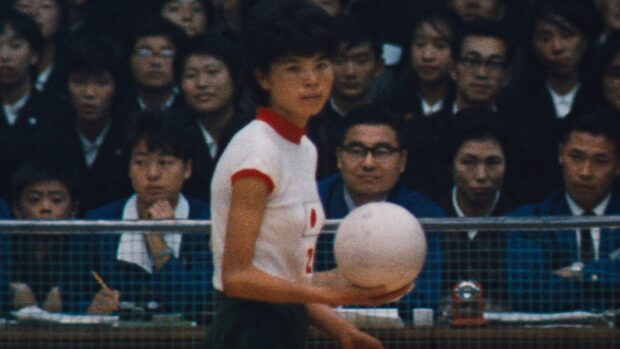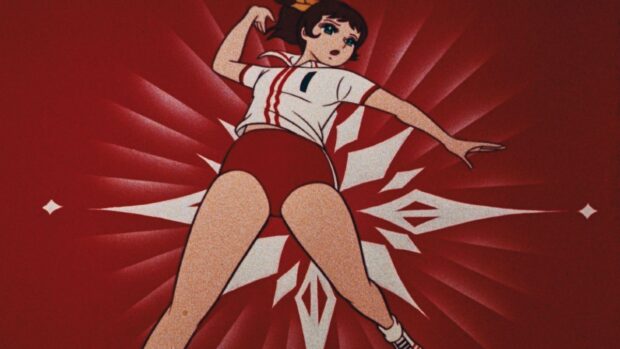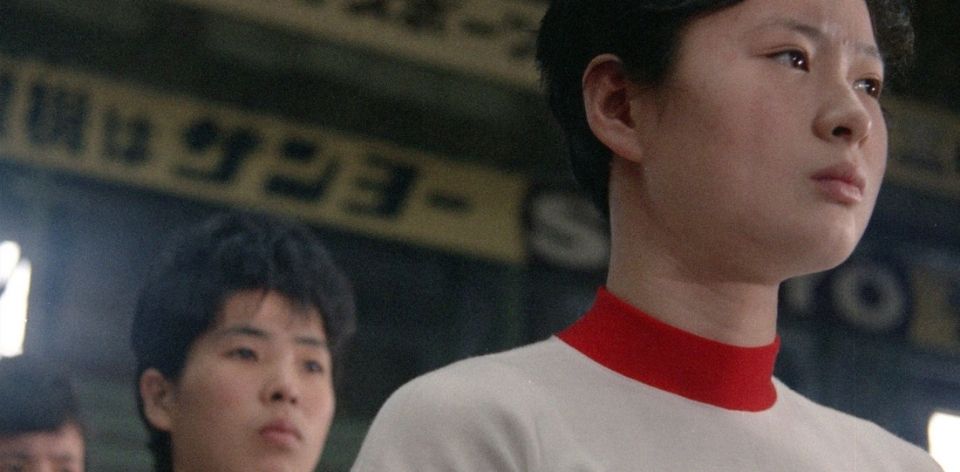The significance of the 1964 Tokyo Olympics continues to echo to this day. Following the delay of the 1940 games, they were a positive beacon for post-War Japan and marked a new period of global cooperation. For film lovers, they spawned Kon Ichikawa’s classic documentary.
Yet for all of this coverage, several stories remain largely untold. Julien Faraut’s new documentary THE WITCHES OF THE ORIENT (Les Sorcières de l’Orient) explores the fascinating history of the ‘Nichibo Kaizuka,’ the women’s factory volleyball team who gained their nickname from their spooky number of wins.
Formed in the 1950s, the factory team took to the world stage with victories at the FIVB Volleyball Women’s World Championship. They became known for their trademark kaiten reshību, a method of rotating on the court and receiving the ball while rolling. Their intense training regime under Hirofumi Daimatsu eventually earned them a place at the Tokyo Games. Following the devastating loss of the Japanese team in judo, national hopes were pinned on the Kaizuka team.

Faraut’s film aims to convey just how vital this team was to Japan’s national psyche. On the occasion of the 50th anniversary of the Tokyo games, Robert Whiting emphasised the importance of the team’s win, arguing it “was seen to symbolize the dogged resurgence of the Japanese economy, short on resources but full of fighting spirit, in the wake of the games.” Essays, manga, anime and merchandise all followed the win.
One of those works was the anime Attack No. 1, a late 1960s show that contributed to the nation’s obsession with the sport and its new stars. Faraut splices this into outstanding vintage footage of the team training, largely presented without narration and set to discordant music. One sequence uses Portishead’s ‘Machine Gun’ seemingly apropos of nothing. It’s a unique use of sound and vision that skews the film away from being just another series of talking heads.
Yet this same style sometimes hampers the storytelling. Despite having access to a number of the surviving team members, Faraut really only uses footage of them eating or explaining their own nicknames. He fills the documentary with lifeless text cards, those really long montages intercut with anime, random stock footage, and disjointed narration. Perhaps this is indicative of a lack of enough film in the archives for a feature, as there is certainly a decent story at its core.

The team’s 258 consecutive victories ended in 1966, but it remains a standing record. Almost sixty years later, the world awaits a Tokyo games that has been delayed for very different reasons. While not the first document on the so-called Witches of the Orient, and almost certainly not the last, Faraut’s film arrives as a hopeful testament to a group of national heroes.
THE WITCHES OF THE ORIENT had its world premiere at the 50th-anniversary edition of IFFR. The festival ran from 1 – 7 February 2021 on the IFFR.com platform. Check out the website for screening details.
2021 | France | DIRECTOR: Julien Faraut | WRITER: Julien Faraut | DISTRIBUTOR: UFO Production, International Film Festival Rotterdam | RUNNING TIME: 100 minutes | RELEASE DATE: 1-7 February 2021 (NL)






